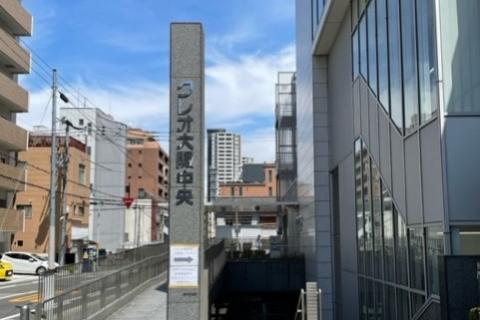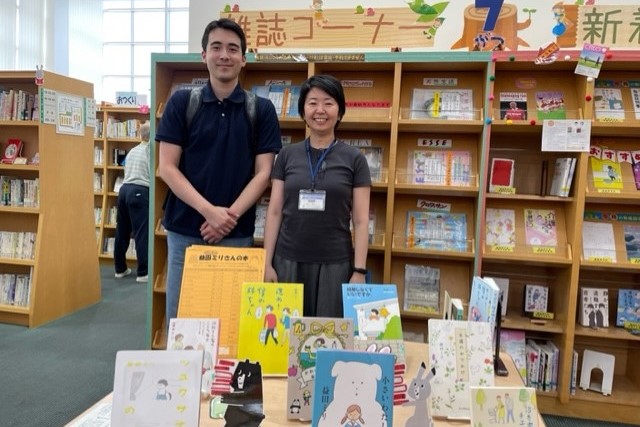【インターン日記】男女共同参画社会の実現をめざす。ジェンダーの視点から見るDE&I

株式会社クオリアでは不定期にインターンの受け入れを実施しています。2024年7月から1カ月間インターン生として受け入れたのは、アメリカ合衆国出身の大学3年生、Richard Kazuyoshi Ferris(リチャード・和良・フェリス)さんです。2年前に海外からのリモートインターンとしてクオリアで働き、クロスロードダイバーシティカードの英語版作成に関わっていただきました。その際にDE&I(ダイバーシティ・エクイティ&インクルージョン;以下DE&I)やアンコンシャス・バイアスという言葉に出会い、強い関心を持つようになり、今回は来日してのインターンを行うことになりました。
イベントの準備やeラーニングの翻訳チェックなどに加え、DE&Iの実現に向けて多様な分野で活躍をされている方々6名へのインタビューを行いました。その内容をまとめて「インターン日記」と題して紹介します。
第5回目はクレオ大阪中央の岸上真巳さんとのインタビュー内容を掲載いたします。
(Kazuさんの作成したインタビュー記事を基に、日本語訳を補完しています)
Qualia Inc. has been accepting interns, and this time we welcomed Richard Kazu Ferris, a third-year university student from the United States, for a one-month internship starting in July 2024. Kazu san had previously participated in a short-term remote internship at Qualia and expressed interest in DE&I (Diversity, Equity, and Inclusion) and unconscious bias. Based on this interest, he decided to join us for a month-long in-office internship.
In addition to various tasks, we asked Kazu san to interview individuals who are actively working to realize DEI. We will be serializing these interviews as "Intern Diaries" in a total of six installments.
岸上 真巳(きしがみ まみ)様プロフィール

クレオ大阪中央事業推進課 課長代理
2001年入職。クレオ大阪中央開館時の図書コーナー整備・運営を担当。2006年に 国の女性のチャレンジ支援施策として、大阪市初の女性の起業準備オフィス開設に従事。2008年より企画チーフとして、行政・企業・NPOと密接に連携して10年以上続くセミナーを企画・運営し、約1000名 が受講。2021年よりクレオ大阪子育て館の館長として、仕事と生活の両面から女性のキャリア形成支援に取り組む。2023年度より現職。
大阪男女いきいき財団とは
一般財団法人大阪男女いきいき財団は、1993年に設立された一般財団法人です。大阪市内において30年以上男女共同参画やジェンダー平等、さらには男女にとどまらないダイバーシティ推進に尽力しています。同財団は大阪市の男女共同参画センター5館の管理運営をはじめとし、相談事業や調査研究事業などさまざまな事業を担っています。
女性の力を引き出す実践者をめざして
最初に現在の仕事を選んだ理由について伺いました。岸上さんは現在、一般財団法人大阪男女いきいき財団に在籍。ジェンダー平等や女性のリーダーシップをテーマにしたプログラムの責任者として業務にあたっています。
大学院で性教育の修士号を取得した後「研究者の道よりも実践的に女性たちをエンパワーメントすることに力を注ぎたい」という思いから、クレオ大阪 でのキャリアをスタート。20年以上のキャリアをお持ちです。
さらに岸上さんは、昨年業務の傍ら大学院に通い、経済学の博士号を取得されたとのこと。
アメリカの大学では、授業やキャンパス内でさまざまな年代の方々を見かけるのは日常的な光景です。しかし、日本では仕事をしながら大学に通うことはまだまだ珍しく、仕事と勉強の両立の大変さは想像に難くありません。
I asked her about her job and the reason why she chose this job. She has worked at Osaka Gender-Equal Community Foundation, and it is located in CREO Osaka Central. She works there, and she is a program officer at CREO Osaka and delivers programs, especially those involving gender equality or women’s leadership.
She graduated, and received a master’s degree for sex education. At that time, she thought she was not good enough at research to be a researcher, so she wanted to deliver more practical ways to encourage women and help empower women. So, she decided to work here. She has been working here, at CREO Osaka, for almost 20 years, and received her PhD in economics at university last year, so she both works and studies at the same time, she explained.
In the United States, at the university that I attend, I often see older people in my classes and on campus. It seems like that is much less common here in Japan, and so I imagine it must have been difficult to work and study at the same time, but it makes it even more impressive that Kishigami san was able to do both and receive her PhD.
大学での講義を通して感じるZ世代のジェンダー観と日本におけるDE&Iの現状
岸上さんは2年前から大阪経済大学で非常勤講師として勤務。「ジェンダー論」のクラスを担当しています。200〜300人の生徒が聴講する授業では、優生思想、性教育、ドメスティック・バイオレンス、職場でのセクシャルハラスメントなど、ジェンダー問題に関するテーマを扱っています。
岸上さんが驚いたことは、ほとんどの学生、特に女子学生が差別を感じておらず、自分たちが平等だと思っていることです。30〜40年前の日本では、女性の多くが結婚すると仕事を辞める選択を迫られたことや、男女の賃金格差が現代以上に激しかったことを学生たちに伝えると、一様にびっくりするそうです。
また、単なる過去のできごとだけでなく、男女の賃金格差に関して現在も問題視されていると知り、学生たちはさらに驚愕するとのこと。ほとんどの学生が「ジェンダーの問題」を自分たちのセクシュアリティやLGBTQに関する問題と捉えているようで、中には「ジェンダー(Gender;社会的な性)」と「セックス(Sex;生物学的な性)」の意味を混同している学生も多いと聞きました。
近年ほとんどの人、特に企業で働く人はDE&Iに関心をもっていると岸上さんは話します。しかし、多くの人はジェンダーの多様性をセクシュアリティの多様性だけと捉えがちです。岸上さんは、障がいの有無、民族、宗教の多様性など、より幅広い視点で考える必要があると感じています。
また、DE&Iを実現するために個人ができることとして、多様な人と出会い、対話し、議論し、心を開くこと、心理的安全性の高い環境を作り、理解するために互いを尊重することが大切だと私に教えてくれました。
She is teaching at Osaka Keizai University, and her course is called Gender Issues, so it is about Gender Studies. There are so many students in that class; 200 to 300, she explained. She wanted to introduce them to the topics about gender issues, like eugenics, sex education, domestic violence, and sexual harassment in the work place, etc. She has about 10 to 16 topics that she is teaching, and she has been teaching for two years now.
At the university, when she is teaching my courses, most students, especially female students, tell her they do not feel discriminated at all and that they feel totally equal.
When she teaches them about 30 to 40 years ago, how women used to have to leave their job once they got married, and that the payment was very different between men and women. They are especially surprised about this and about the fact that this is not just history, but this is living history, as we still face many differences regarding the pay difference between men and women.
She also said, most students think gender issues are equal for our sexuality or LGBTQ issues. Some students think gender means sex, so they mix them up.
I asked about what Kishigami san think about some current issues with DEI in Japan.
Nowadays, most people, especially working people, are interested in DEI, but most of them think that gender diversity issues only apply to sexual diversity. She thinks we have to think about gender differences and disabilities and ethnic or religion, something like that. We have to broaden their mind, she explained, as right now, in Japan, we still think this is the one and only issue.
Also I asked her about how she thinks that there is anything individuals could do to help promote DEI. She explained that she thinks it helps to meet as many people as possible and talk, discuss, and be open-minded, and to not hesitate to ask questions.
さまざまな悩みに寄り添い、エンパワーメントし続けるクレオ大阪
岸上さんが勤務するクレオ大阪中央や提供しているサポートについて伺いました。

クレオ大阪とは
クレオ大阪は、大阪市の男女共同参画を推進するための活動とネットワークの拠点施設です。男女ともに性別にとらわれず、対等なパートナーとして、あらゆる分野に参画し、その持てる能力を十分に発揮できるよう、支援している。市民・団体・企業・教育機関・行政などと連携し、さまざまな事業を展開。大阪市内に5施設があります。
クレオ大阪中央では、男女共同参画センター5館を統括する基幹センターとして、ジェンダー平等や女性の社会的地位の向上、特に男女共同参画社会の実現の重要性などをテーマとして扱ったセミナーの開催の他、男女共同参画社会の実現に有効な方策を示すための調査を実施する研究室もあり、毎年調査を行っています。
またこの施設には相談窓口(女性総合相談センター)があり、女性や男性のための相談や、子育て、夫婦間の暴力など幅広いテーマでカウンセリングを行っています。 また、「女の子のためのクレオ保健室」という若い世代のための性教育を目的とした相談も行っているそうです。
更に女性総合相談センターとは別に、気軽に誰かと話ができるスペースである「女性チャレンジ応援拠点」も設けています。岸上さんは月に2回程度、そこを訪れる人たちと話しをして、より自分の意見を声に出し、他者に伝えられるよう励ましているそうです。岸上さんは、いつか彼らが今以上にパワーをもち、自らで道を切り開いていけるようエンパワーメントしていきたいと語っていらっしゃいました。
時々、かつてこのスペースを訪れた方たちが帰ってきて、就職が決まったことなど前向きな話をしてくれることもあり、それがやりがいにつながっているそうです。
私の住むアメリカでは、心の健康のためにセラピーを利用することはとても一般的で、社会的にも受け入れられています。そのため、クレオ大阪中央にもカウンセリングセンターがあることは、多くの人にとって有益なことだと感じました。
Next, I asked about what services CREO Osaka provides.
There is a counseling center in this facility, where they provide counseling for women, for men, about childhood, about domestic violence, etc. They also have counseling that focuses on sex education for the younger generation, and she believes this counseling division is very important for their center.
They also provide seminars to help those attending understand the importance of gender equality or justice for women, and especially for equity between men and women. They have about 20 to 30 seminars a year, and gather about 1000 people. So, the seminars would have about 30 to 40 people each.
In addition, they even have a research center at this center. They have a researcher and they conduct research to show effective ways to achieve a gender-equal society in the border from Osaka City.
As she mentioned earlier, they have a counseling center, but they also have a space for just chatting normally. In this room, she would talk with whoever is there around twice a month. She tries to encourage them to raise their hand more and show their opinions. She ultimately wants to empower them, she said.
Sometimes, the people who come to this room come back, and they will talk about how they got a job and other positive things such as that, and she explained that that makes her feel very good.
These centers are focused around gender equality, but they focus especially on empowering women to realize their power to be able to do something; to be able to start up something.
In the United States, it is very common and socially accepted to use therapy to help with your mental health. In Japan, it seems to be becoming more socially accepted, but still harder to receive than in the U.S. Due to this, I think that the idea of CREO Osaka having a counseling center must be very helpful to many people.
女性が経営を疑似体験する「チャレンジ・カフェ」
男女共同参画センターでは、特に女性が自分の力を最大限に発揮し、何かを始めたり、何かを成し遂げたりできるようにする機会を提供することにも重点を置いて活動しています。
例えば「チャレンジ・カフェ」と呼ばれる女性のための起業支援プログラムも提供しており、大きな事業の一つであるとのこと。これは、カフェ経営をはじめとする飲食業界での起業を考えている女性が参加することができる特別プログラムで、参加者は、自分の店を始めるための行動計画を立て、それらを6か月の間に同施設内にあるカフェで実行し、試行錯誤を繰り返します。
カフェ経営や飲食業界で起業したい方たちが、実際に自分の店を経営する感覚で挑戦できるチャレンジ・カフェのアイデアは非常に素晴らしいと思いました。このサービスを利用した方たちが、将来自らで起業し、カフェ経営をすることが実現できるよう願っています。
Alongside all of this, she mentioned, they also have something they call “the Challenge Café”. Entrepreneurship for women is one of the big main topics at their center. At this Challenge Café, women who want to run their own small business like a café can enroll in a special program. In this program, they would make their own action plan to start their shops, and try this plan at this shop for six months at a café inside the library.
I think that the idea of the Challenge Café is great, as it allows those who are trying to open their own small café to try it out in a real setting with real customers. I hope that those who use this Challenge Café can create their own cafés in the future!
インタビューを終えて

岸上さんとのお話は非常に楽しい時間でした。ジェンダー平等についての課題、そしてその課題を改善しようとする岸上さんの活動について多くのことを知ることができました。さまざまな事に挑戦されている岸上さんが次は何に挑戦されるのかとても楽しみであり、今回インタビューの機会をいただけたことに感謝しています。
My Thoughts
I enjoyed my talk with Kishigami san very much. She taught me a lot about gender equality and its issues and about the work that she does to try and improve it. I am excited to see what she does next and am grateful to her for giving me the time to be able to interview and speak with her.
